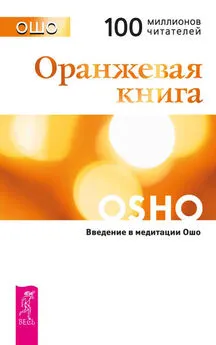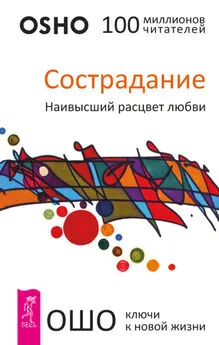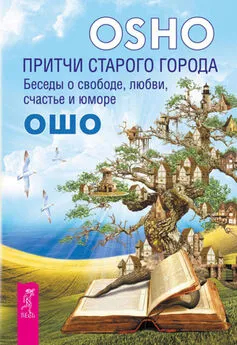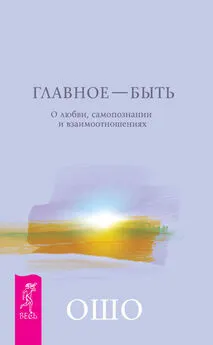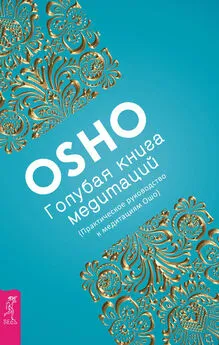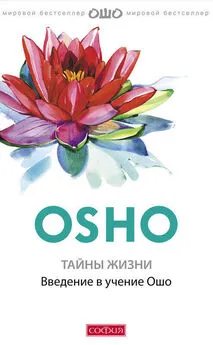Бхагаван Раджниш (Ошо) - Послания любви. 365 писем Ошо
- Название:Послания любви. 365 писем Ошо
- Автор:
- Жанр:
- Издательство:Array Литагент «Весь»
- Год:2012
- Город:СПб
- ISBN:978-5-9573-2446-1
- Рейтинг:
- Избранное:Добавить в избранное
-
Отзывы:
-
Ваша оценка:
Бхагаван Раджниш (Ошо) - Послания любви. 365 писем Ошо краткое содержание
Речь Ошо необыкновенно поэтична. Чтобы читатель прочувствовал ритм и неповторимый стиль великого мастера, в книге, помимо перевода, приведен оригинальный английский текст. Исполненные тепла и любви, где каждая фраза наполнена глубоким смыслом, эти письма будут вашим другом и помощником в познании себя.
«Суть не в том, что вы слушаете, но как вы слушаете – потому что послание повсюду, повсюду, повсюду» (ОШО).
Ранее книга выходила под названием «Чашка чая. 365 писем Ошо».
Послания любви. 365 писем Ошо - читать онлайн бесплатно ознакомительный отрывок
Интервал:
Закладка:
the quality of let go .
Then one is relaxed totally.
And all flowering is in relaxation,
and all benediction.
175. Love.
Fear cripples consciousness,
and fear is the source of unconsciousness,
that is why without transcending fear
no one can attain to full consciousness.
But what is fear?
Fear is awareness of death without knowing what death is.
Fear exists in the gap between you and your death,
and if there is no gap, no space,
then there is no fear.
Do not think of death as something outside you
because it is not.
And do not think of death as something in the future
because it is not.
Death is within you,
because death is the other side of life.
Life cannot exist without death;
they both belong to the same energy
as positive and negative poles.
So do not identify yourself with life –
because you are both.
The identification with life creates the gap.
And death has nothing to do with the future,
it is always here and now.
Every moment, it is.
And when one ceases to regard it
as something outside oneself
and, so to speak, draws it into his consciousness
and assimilates the idea of it,
one is completely changed.
He is in all truth born again.
And then there is no fear
because then there is no gap.
176. Love.
Thinking is necessary but not enough,
one must know living also,
otherwise one becomes like the philosopher
mentioned by Soren Kierkegaard
who builds a fine palace
but is doomed not to live in it.
He has a shed for himself next door to what
he has constructed for others,
including himself, to look at!
Meditation is not thinking, but living.
Live it daily, moment to moment;
that is, live in it or let it live in you.
It is not something other-worldly either,
because all such distinctions are from the mind:
they are speculative and not existential,
and meditation is existential.
It is no more than one’s everyday life lived totally .
When Mencius says: The truth is near
and people seek it far away,
he means this .
When Tokusan is asked about it he replies:
When you are hungry you eat,
when you are thirsty you drink,
and when you meet a friend you greet him.
He means this .
Ho Koji sings: How wondrous this, how mysterious!
I carry fuel, I draw water.
He also means this .
And when you are near me
whatsoever I may say I always mean this .
Or I may not say anything –
but then too I always mean this .
177. Love.
Religion is so much an experience
that it cannot be handed over by one to another.
But there are traditions of religious experience –
which are bound to be false
because of the very nature of the religious experience.
One has to travel the path alone
with no footprints of other travelers even to guide one.
Hassan of Basra was asked: What is Islam and who
are the Muslims?
He is reported to have said:
Islam is in the books
and Muslims? Muslims are in the tombs.
178. Love.
The world itself is a punishment enough,
so really there is no need for hell at all.
Once a man who had three wives
was brought before the king of the country for punishment.
The king called in his counselors and asked them to devise
the worst possible punishment for the offender,
even death itself.
But they did not order his execution,
ruling instead that it would be still worse for him
to live with all three wives at the same time.
Two weeks later the man committed suicide.
179. Love.
I have no special doctrine or philosophy,
no set of concepts or intellectual formulas,
but only certain irrational devices
through which I can push you into the unknown.
I do not believe in any theories
or any systems of thought,
but I have faith in certain existential situations
through which I can throw you into the unknown.
Intellectual understanding is not understanding at all
but only a deception.
Understanding is always of the total,
of the whole being.
Intellect is only a part, and that too a minor one,
but it acts as the whole
and thereby creates all sorts of stupidities.
Do not be identified with your intellect.
Dissolve it into the whole of your being,
and then you will know what understanding is –
and the bliss and the ecstasy that follow it inevitably.
180. Love.
Meditation is a mirror –
and the most faithful one.
Whoever goes into meditation
risks a confrontation with himself.
The mirror of meditation never lies,
and it does not flatter.
It is impartial and innocent
and it never projects anything.
It only faithfully shows your real, original face,
the face we never show to the world,
the face that we ourselves have forgotten.
So it is possible
that you yourself
may not be able to recognize it the first time!
But do not escape from it.
Face it and you will come to know it and recognize it.
This confrontation is the first test of courage
on the inner way.
So when it comes about –
rejoice and feel blessed.
181. Love.
Yes, there is tension.
To be consciously conscious is to be tense,
but it is not because of consciousness
but because of partial consciousness .
The unconscious is always
behind the so-called consciousness.
This situation creates tension
because this creates a dichotomy, a duality;
hence the tension.
The being, which cannot be divided,
is divided,
hence the tension.
The unnaturalness of the situation
is the root cause of this tension,
and for that matter of all tensions,
because then one is not individual,
that is, indivisible;
therefore there is tension,
and one cannot really relax unless one is one .
Either be totally unconscious as in deep and
dreamless sleep –
and then there is no tension,
or be totally conscious –
and then you are in the state of no-tension
because the total can never be tense.
That is why the whole is the holy.
But falling into a deep sleep-like trance
is just escaping the problem,
and that too only for the time being,
because you will be back soon –
and worse off,
because by such escapes
the gap between
the conscious and the unconscious
is not bridged
but, on the contrary, widened even more.
One becomes split and schizophrenic.
So always be aware of the mind
because it tries to find solace in unconscious states
in so many ways –
through chemical drugs,
through auto-hypnotic means, and otherwise.
Begin to be aware of anything
which ordinarily happens unconsciously,
for example – anger, jealousy, pride –
and your consciousness will be deepened.
Act consciously,
even in day-to-day acts be conscious,
for example walking, eating, talking,
and your consciousness will be expanded.
Be alert when thinking.
No thought should be allowed to pass unwitnessed.
And then, in the end, there is an explosion
in which you become totally conscious,
with no unconsciousness behind.
When this happens one is one ,
and to be one is to be silent.
This silence is beyond time and space,
because it is beyond duality.
182. Love.
God is when you are not.
When you are it is not
because you are nothing but a blindness.
The ego cannot see,
the ego cannot be aware,
the ego exists only as a by-product of unconscious living.
One goes on living as if in sleep.
In this sleep the part begins to dream that it is the whole ,
and this dreaming becomes a barrier to knowing the whole .
Begin to be aware,
aware of your actions, thoughts and emotions,
just aware .
Because if you condemn or appreciate
you will not be aware –
in any choice the awareness is contaminated
and the darkness of unawareness comes in.
So just be aware without any choice;
then awareness is pure and innocent,
and then awareness is a mirror.
In this mirror-like awareness one never finds oneself
but one finds that-which-is .
And that is God.
But it is only when you are not
because you are the dust which makes the mirror blind.
Because you are the blindness.
183. Love.
There are three forms of knowledge.
The first is intellectual knowledge,
which is in fact not knowledge but only information
and the collection of facts and the use of these
to arrive at further intellectual concepts.
The second is emotional knowledge,
which is also not really knowledge
but the mental state in which man feels
he has known something,
but there is no transformation or mutation of his being.
The first is objective, and out of it science is born,
and the second is subjective, and is the source of all art.
The third is neither,
it is beyond both,
and this third is the real.
It is achieved through meditation
because meditation does not use thinking and feeling
as doors of perception.
Really, these are not doors of perception
but forces of projection.
Through them pure knowing is impossible;
whatsoever comes through them is changed and colored by them.
So unless one is free of all projections
one cannot know that-which-is .
When there are no ripples of thought and emotion
in the consciousness, then and only then
does the third form of knowledge dawn,
and this third is the only real knowledge.
Out of it religion is born,
and out of it is total transformation.
184. Love.
The journey is long
and the path is pathless.
And one has to be alone –
there is no map and no guide.
But there is no alternative.
One cannot escape it,
one cannot evade it.
One has to go on the journey.
The goal seems impossible
but the urge to go on it is intrinsic.
The need is deep in the soul .
Really, you are the urge, you are the need –
and consciousness cannot be otherwise
because of this challenge
and because of this adventure.
So do not waste time – begin .
Do not calculate – begin .
Do not hesitate – begin .
Do not look back – begin .
And always remember old Lao Tzu’s words:
A tree that takes both arms to be encircled
grows from a tiny root.
A many-storied pagoda
is built by placing one brick upon another brick.
A journey of three thousand miles is begun by a single step.
185. Love.
When I say mutation I do not mean simply change.
Change is from the known to the known.
A sinner becomes a saint –
then it is change and not mutation.
You can practice change
but you cannot practice mutation
because only the known can be practiced –
and then any change is going to be only a modified past
because the past will be continuous in it,
and the past also will be the master of it
Читать дальшеИнтервал:
Закладка:

